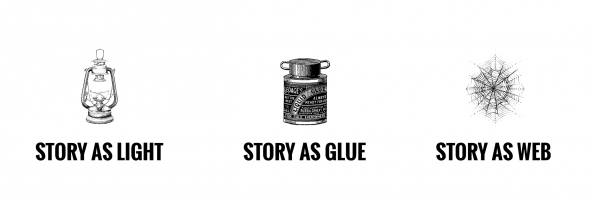Highlighting the fault lines and how cli-fi novels can move the discussion forward:
see the Cli-Fi Report at www.cli-fi.net
“So you’re the little woman who wrote the book that made this great war.”— Abe Lincoln to Harriet Beecher Stowe
When Uncle Tom’s Cabin was first published in 1854, it outsold that year’s Bible sales. Printing presses stayed open 24 hours a day to keep up with public demand for the book that is often called “the first bestseller.” Written by abolitionist Harriet Beecher Stowe, its emotional portrayal of the cruelty of slavery in the United States roused abolitionist support in the North and galvanized the South to fiercely defend it, leading to Lincoln’s legendary (if unverified) comment in the midst of the Civil War. While the book’s treatment of race has since come under fire, its systemic significance is incontrovertible.
Let me illustrate the role of story in changing a system. Stories make, prop up, and bring down systems. Stories shape how we understand the world, our place in it, and our ability to change it.
Humans have always used stories to make sense out of our chaotic world. When our ancestors had to kill animals they felt were kindred spirits to survive, they created myths to help them come to terms with it. When they invented agriculture, they created myths that glorified graft and highlighted the seasonal nature of existence. When they began to settle, humans created myths imbuing cities with transcendence. As Yuval Noah Harari describes in his book Sapiens: A Brief History of Humankind, story went on to play a vital role in building all subsequent civilizations.
Fast-forward to the volatile times we live in today, where people increasingly recognize that tackling problems like climate change, inequality, and health care requires a systems approach. The work of systems change involves seeing systemically—looking at the elements, interconnections, and wider purposes of systems—and acting systemically. Story plays a vital role in helping us do both of these things.
Story has many different qualities that make it useful for the work of systems change. It’s a direct route to our emotions, and therefore important to decision-making. It creates meaning out of patterns. It coheres communities. It engenders empathy across difference. It enables the possible to feel probable in ways our rational minds can’t comprehend. When it comes to changing the values, mindsets, rules, and goals of a system, story is foundational.

No comments:
Post a Comment